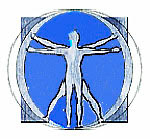I attended the WebGuild Web 2.0 conference, 29 Feb. They expected around 300 people and were surprised to find 1200 attending. They had two keynote speakers and sessions divided into four track. I found it a mixed experience. The sessions I attended ranged from very informative to useless. A key item missing was any definition or explanation for what is Web 2.0 and what was just an improvement over the typical website and experience.
The opening Keynote was by Gil Penchina, CEO of Wikia. While the WebGuild blog posting called the talk fantastic, I would describe it as interesting. He talked about the background and philosophy of Wikia and Wikipedia. It seemed a bit “canned”. The one interesting piece was their newly launched Wikia Search. It will be worth following this effort to see if crowdsourcing and providing open access to the code and algorithms will create a search engine that can match the money and clever young folks at Google.
The second Keynote was an interview with Craig Newmark, Founder of Craigslist. As usual, Craig was very easy going and low key while still engaging. He was very open about the design and philosophy that drive the folks at Craigslist. It was good to hear someone resist the urge to jump onto the Web 2.0 bandwagon. His brief description of his current role as a customer service representative was amusing and served to emphasis the focus on the customer.
I found Steve Souders, former Chief Performance Yahoo!, and now working on web performance at Google, informative and inspiring. Most of the tips and techniques he talked about are of use to the current web site designers. It was good to hear about studies validating what the user centered design people say about page downloads. Bloated and poorly designed pages download slower and people notice. The Google study showed a loss of 20% of the traffic when the page download time increased by just one half of a second. For them, traffic equals revenue, so download speed does matter.
I attended a panel discussion on “Designing Search Friendly Sites”. The members of the panel were all very informative. There was Paul O'Brien, Marketing Director, Zvents, Lance Loveday, CEO, Closed Loop Marketing, and Charles DiFazio, Software Engineer, Google. Andreas Mueller, CTO, Bloofusion was the moderator. The comments and recommendations covered the common items, such as link backs, content, keywords, and the importance of building a site that the search engine can crawl. A big warning was issued to the designers rushing to create Web 2.0 sites using Ajax, Flash, content that requires a login, images, and multimedia applications. Charles reminded us that if the site was set up so that a blind person can access the information, then a search engine crawler will be about to find it.
The panel discussion on “Designing the Mobile Web” was not as useful for me. The members of the panel were knowledgeable and were working in the area. Julie Ask,
Vice President & Research Director, Jupiter Research moderated and the panel members were: Barbara Ballard, Founder & President, Little Springs Design, Ain Indermitte, Senior Developer Relations Manager, Nokia, and Brad Lassey, Mozilla. The take away was that mobile phones in the US are becoming more functional and that people are using them to access the web. Once again, we are reminded that people need a Smart phone or one of the high end models. As these become more affordable, companies need to plan and develop ways for the phone user to access information. Some of the current web design items, such as cookies, Ajax, and even metrics do not work well when people use the phone to access the web. The work done by Apple with the iPhone, Nokia, and Google’s Android operating system for phones were pointed to as indicators.
It was good to attend. From the topics, especially the sessions I did not attend, it appears most of what could be thought of as Web 2.0 revolved around Social Media oriented work. I believe that Web 2.0 is more than just FaceBook and YouTube. What it turns out to be, only time will tell.
Technorati tags: web design; Web 2.0; web apps; business strategy;
Sunday, February 03, 2008
Subscribe to:
Posts (Atom)


